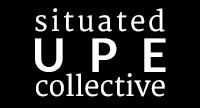The first time I realised there was something funny going on was when we were discussing shebeens- informal drinking spaces usually found in townships. I asked my students “where do you find shebeens” and they answered “in the rural areas”. It threw me. In the moment, I didn’t realise what they meant, but figured the students just didn’t quite understand what I meant. We agreed on the townships as a key location and moved on. Then I graded their first test. Many of the students, without prompting, referred to the townships as “rural areas”. And for the first time, I really started to get some of the concerns that Southern urbanists have raised about Southern cities not being “real” cities. My students thought the same thing- that the formerly white parts of the metropolis were the real city. And despite higher densities in the township, it didn’t really count.
Curious, I asked them in class what “city” meant to them. Of course, they’d been taught textbook definitions at the beginning of the class, but had long rejected density and urbanity in favour.I admit, I hadn’t really planned what to do next. What I wanted was to get on my soap box, tell them that was what the apartheid government wanted us to believe, what the colonists said, what Southern urbanists are fighting against in the academic literature. And, well, I did do a bit of that 😉
